Closeness of TV/radio vote surprises media
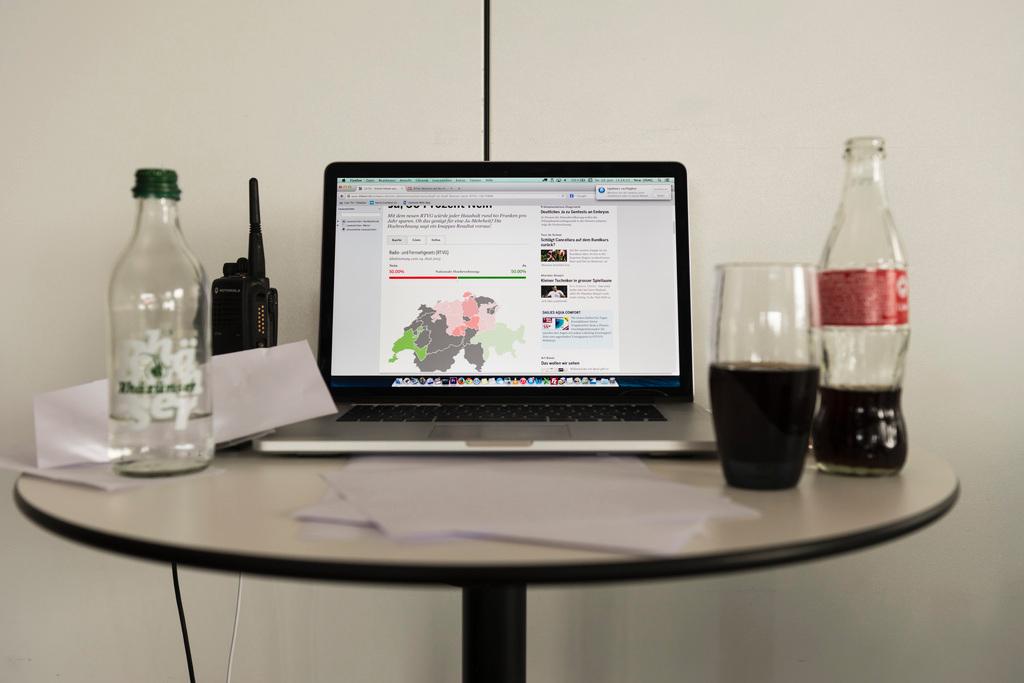
Just 50.08% in favour. Swiss newspapers weren’t expecting Sunday’s nationwide vote to reform the country’s public radio and television funding system to be so close. They are now calling for the framework of public service media to be clearly defined and at the same time warn of excessive meddling by politicians.
“That’s a brutal slap for the Swiss Broadcasting Corporation (SBC)!” wrote Blick on Monday. “Radio and TV fees will drop from CHF462 ($495) to CHF400 a year yet the Swiss still only accepted it by a whisker.”
Supporters on both sides were holding their breath as the results came in on Sunday. In what turned out to be the closest ever nationwide vote in Switzerland, the difference was a mere 3,696 votes of a total 2,253,042 cast. Turnout, at 43%, was average.
“That must really give the national media giants – but also politicians – food for thought,” wrote the Nordwestschweiz. “Both must go back over the books and return public service broadcasting to its original purpose. State money should produce programmes which are important for the country and which can’t be financed in the free economy.”
Communications Minister Doris Leuthard welcomed the approval, but the debate on public service media is set to continue.
The Tribune de Genève viewed the result as a sign of considerable distrust in the SBC, swissinfo.ch’s parent company, which it described as a “mammoth”, which in the eyes of its adversaries had increased in “bureaucracy and excess baggage”.
L’Impartial in Neuchâtel called on the SBC to “reform itself, reduce its rampant structure, adapt to the expectations of its public and bear in mind technological developments as well as changes in the media landscape”.
One positive to come out of the referendum, according to the Tages-Anzeiger in Zurich, was that at least politicians were debating public service media.
“For years they had resisted it. With the Yes result the pressure is now gone. But the extremely close result could also be read that half the electorate is unsatisfied with the status quo. The journalistic mandate of the SBC must be adapted,” it wrote.

More
Vote results: June 14, 2015
Ruffled hair
French-speaking Switzerland had saved the vote, said the Quotidien Jurassien. Indeed while most German-speaking regions and Italian-language canton Ticino came out against, most French-speaking cantons and Graubünden, home to Switzerland’s Romansh-speakers, approved the reform.
However, “the wind from the bullet ruffled the hair of Doris Leuthard and all the supporters of the reforms”.
The Neue Zürcher Zeitung also turned to meteorological metaphors. “In future the SBC will face a strong headwind,” it predicted. “National radio licences expire at the end of 2017. Those who want to constrict the SBC will have their say. A tough debate can be expected.”
The Berner Zeitung reminded the cabinet and parliament of its duty “to finally work out a political media concept worthy of the name. That means they must set the SBC binding limits without dismantling it. For what’s not disputed is that in many respects the SBC does outstanding work and as a result enjoys broad acceptance”.
Political interference
The St Galler Tagblatt demanded the framework for the SBC be sketched “in broad brushstrokes”.
“But when it comes to the specific form of programmes, politicians should have an intermission,” it added.
Der Bund agreed, saying “detailed rules on what the SBC should offer, regarding content, would not make sense”.
“Banning mindless entertainment from public service broadcasters for example would only lead to more adverts in the Swiss window of foreign broadcasters,” it wrote, referring to the couple of hours in the evening when Swiss programmes – and advertisements – appear on German, French or Italian channels.
“Similarly, one can’t prevent the SBC from offering online content. That’s the only place it can reach young people in the medium term. What’s more, broadcasting entire programmes online offers savings for licence fee payers. But now it’s all the more important to have a new online deal between the SBC and private media companies, a clean division of responsibility.”
For the Südostschweiz, “whatever comes next, it’s clear that the SBC has lost its aura as a national unifier. It will have to explain why entertainment formats or sporting broadcasts aren’t just left to private channels – the answer being that these simply can’t afford it”.
It concluded: “At the same time [the SBC] will have to develop considerable resistance against attempts at political interference. Because ultimately that’s what the anti-SBC alliance is about. From a political point of view, that would be devastating.”
Vote June 14, 2015 – Final results:
Funding of public radio/TV: approved
Yes: 50.1.% No: 49.9.%
Preimplantation genetic screening: approved
Yes: 61.9.% No: 38.1%
Nationwide inheritance tax: rejected
Yes: 29.0% No: 71.0%
Harmonising student grants: rejected
Yes: 27.5% No: 72.5%
Turnout: 43.1.%
28,860 of the 196,900 voters eligible for an ongoing trial with e-voting used the possibility: That is about 14.7%.

In compliance with the JTI standards
More: SWI swissinfo.ch certified by the Journalism Trust Initiative





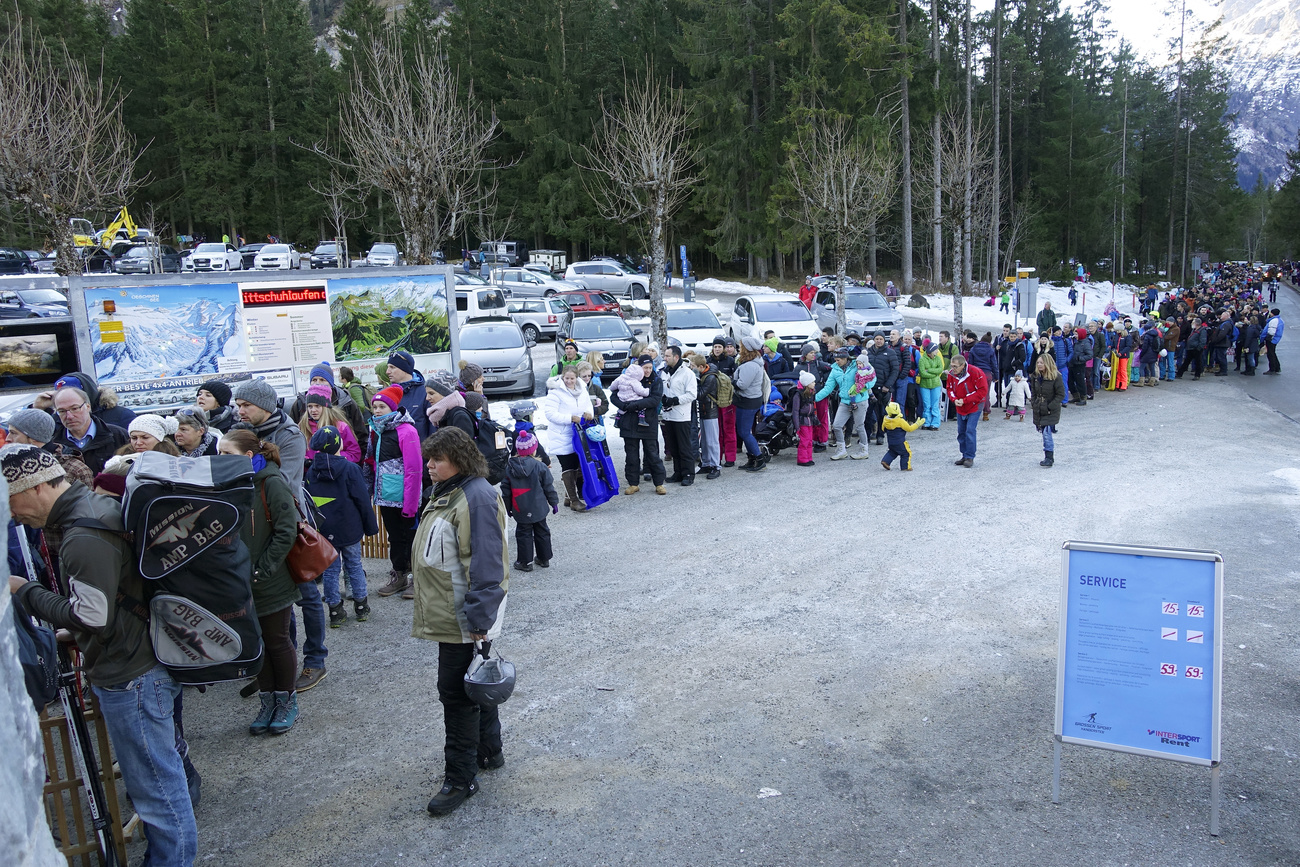

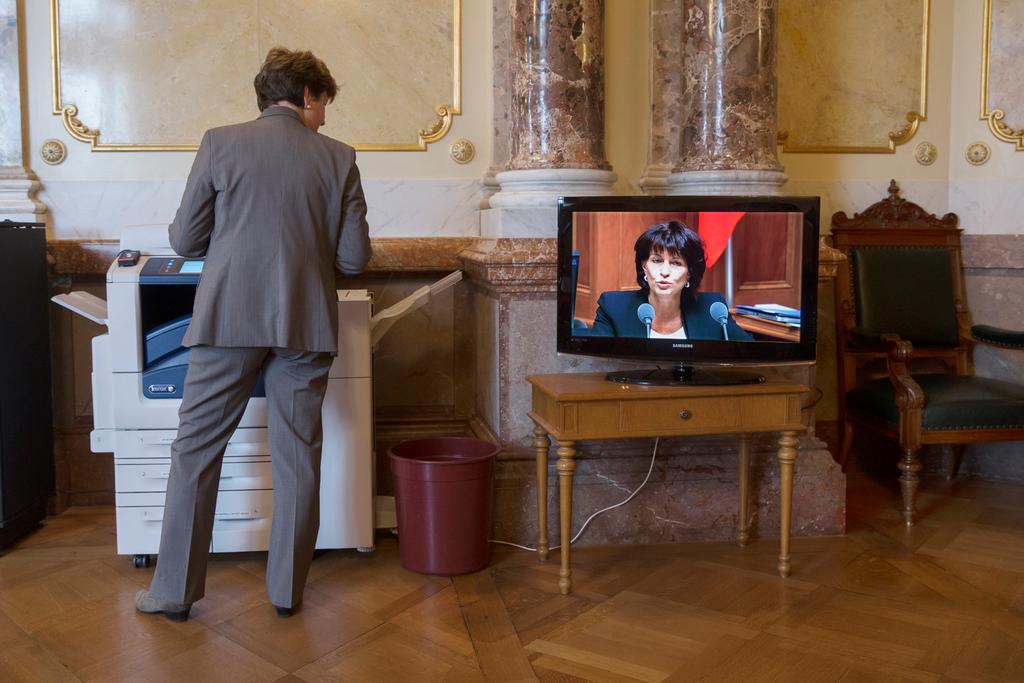
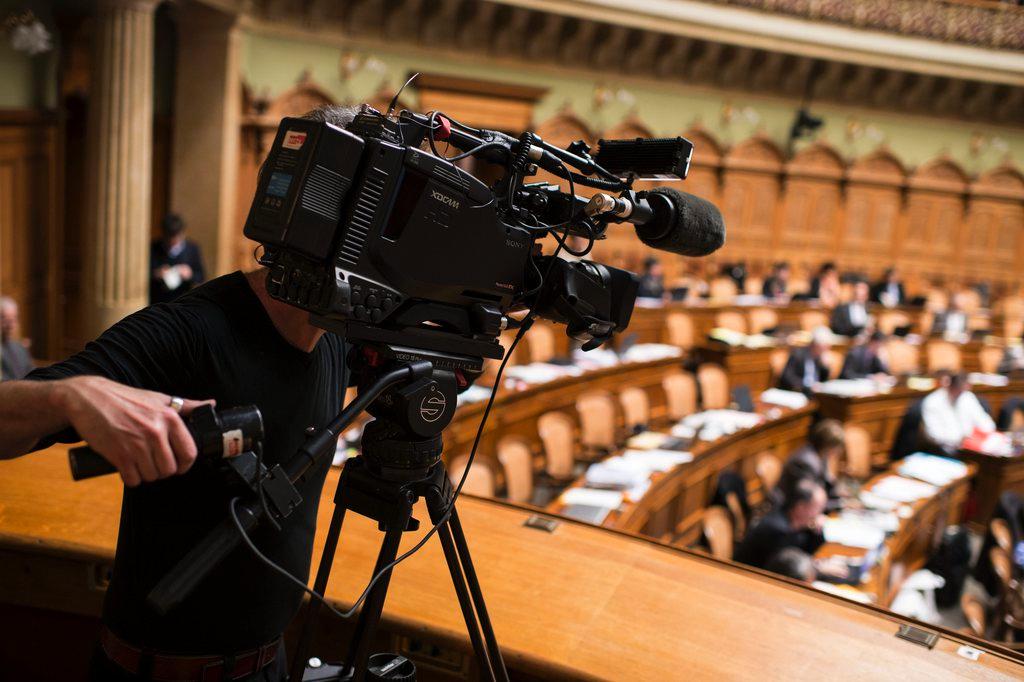
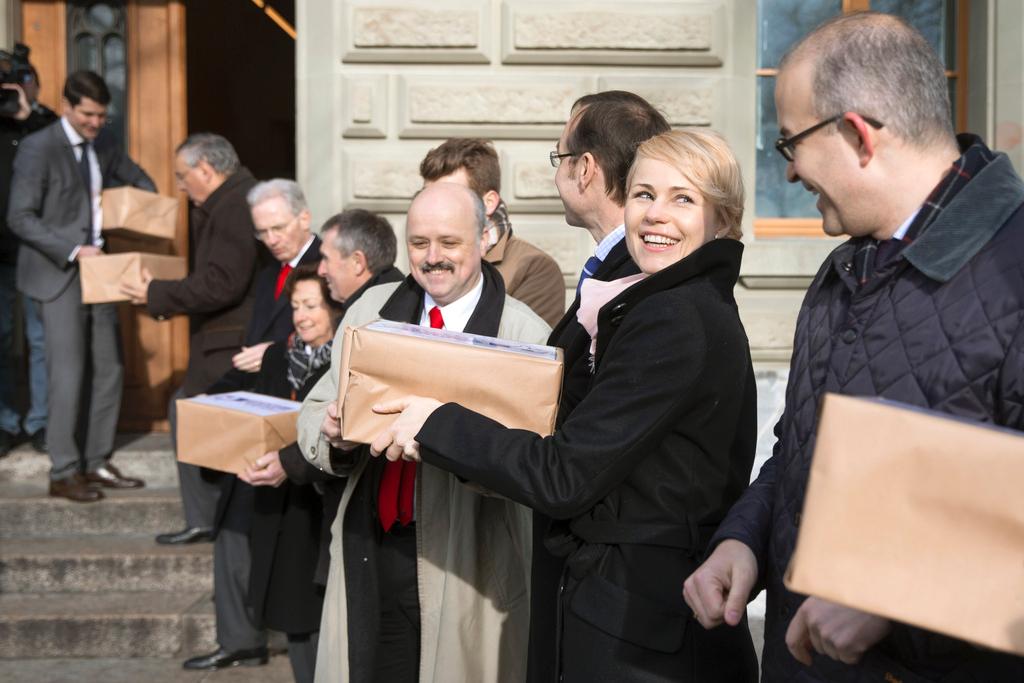
You can find an overview of ongoing debates with our journalists here . Please join us!
If you want to start a conversation about a topic raised in this article or want to report factual errors, email us at english@swissinfo.ch.